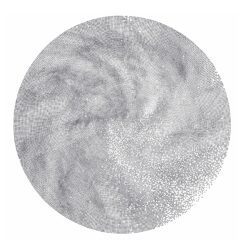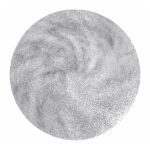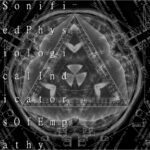RICHARD CHARTIER – INTERREFERENCES 
Richard Chartier does not like to write about his work: “because I want the listener to approach my compositions of sound as such. Focus on the sensorial nature rather than an explicit narrative or reasoning”.
I think that’s the best advice to follow. If the artist himself wants to let the sound speak for itself, then whom am I to spend my clumsy words on it? So, I’ll keep it short.
The six pieces of Interreferences are extremely minimalistic drones, quiet and slowly evolving, while at the same presenting intricate sounds – “pulsing low energy matched against a restrained upper-frequency detail” – that grab your attention from the beginning to the end.
Richard Chartier suggests listening on headphones, but I also love how frequencies like this find their way in the open acoustics of the room they are played in.
Only one question keeps bothering me: whatever happened to Interreference.2?
[edit May 7] – The answer to this question came today: Interreference.2 is released as a digital-only companion EP, together with the shorter track Interreference.8.
These two tracks complete the Interrreferences album previously released.
JEN KUTLER – SONIFIED PHYSIOLOGICAL INDICATORS OF EMPATHY
The conceptual background of this new project by Jen Kutler is somewhat comparable to her 2019 Disembodied release. It is also somewhat provocative but in a different way.
Disembodied was a sonification of data generated from female orgasm, Sonified Physiological Indicators of Empathy is “a collection of sound works created from physiological data collected and analyzed for markers of empathetic response to sounds of violence”.
“A test subject is outfitted with physiological sensors reading electrodermal activity, breath, and heart rate. The subject is then exposed to clips of audio depicting violence in ten-second intervals separated by ten seconds of silence. After the data is collected, it is converted into MIDI files which are given synthetic voices. The timbres and textures draw from heavily processed and prepared piano, time-stretched field recordings, and sampled human voice.”
Try to imagine the sonic result of such a process before you listen to the music of this album. This may not be what you expected: the music does not represent violence at all. Most of it is lovely, introspective, and, indeed, compassionate and empathetic.
Jen Kutler does not simply present sound. She “modifies found objects that are cultural signifiers of power, gender, queerness, and intimacy to create atypical instruments and sculptures.”






Très chouette ! merci des infos, je vais aller voir sur BC 🙂